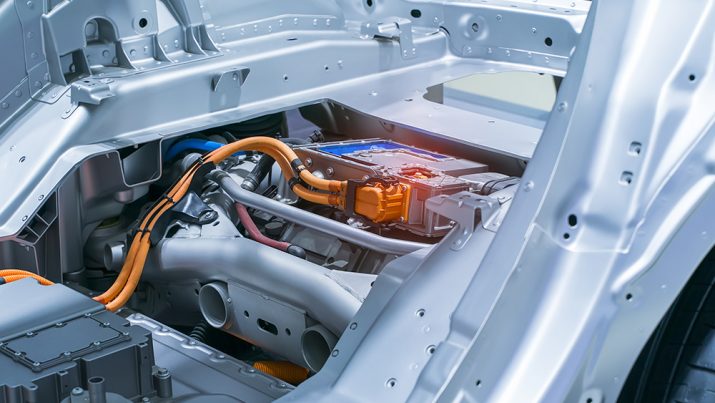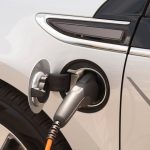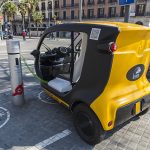
Lithium production setback will hinder EV growth; locals revolt over lithium mining impacts on water supplies
Wednesday, August 17, 2022 by Belle Carter
http://www.products.news/2022-08-17-lithium-production-setback-to-hinder-ev-growth.html

Lithium production suffered a major setback at a time when battery makers desperately need the metal, which is a key component in electric vehicle (EV) batteries.
Earlier this year, Chinese EV giant BYD Co. won a government contract to mine lithium in Salar de Atacama, Chile – a California-sized chunk of terrain that holds 55 percent of the world’s known deposits of lithium. But before the company could tap into that resource, indigenous residents took to the streets and demanded the tender to be canceled over concerns about the impact on local water supplies.
“They want to produce more lithium, but we’re the ones who pay the price,” said Lady Sandón, president of an Atacameño indigenous community that filed a lawsuit.
In June, the Chilean Supreme Court threw out the award, saying the government failed to consult with indigenous people first.
The number of electric cars on the world’s roads by the end of 2021 was about 16.5 million, triple the amount in 2018. Analysts now worry that South America could become a major bottleneck for growth in electric vehicles as the lithium supply needed for the batteries dwindles.
“All the major car makers are completely on board with electric vehicles now, but the lithium may just not be enough,” said Brian Jaskula, a lithium expert at the U.S. Geological Survey (USGS).
Chilean President Gabriel Boric’s leftist government plans to create a state lithium company. He denounced past privatizations of raw commodities. So a new constitution, if approved in a September referendum, would strengthen environmental rules and indigenous rights over mining.
“This is a strategic resource for the energy transition,” said Chile Mines Minister Marcela Hernando, who recently told their Congress that while the government didn’t have the expansive knowledge to mine lithium on its own, it would insist on the majority control of any joint venture with private firms.
Environmentalists believe that mining has caused a major impact on the water supply as some nearby lagoons dried up, harming the population of wild flamingos that rely on them.
“The damage is irreversible,” said Cristina Dorador, a biologist who was a part of the special assembly that wrote the draft of Chile’s new constitution.
Chile was the world’s largest lithium producer a few years ago. But while the country has expanded output at its existing operations by 80 percent since 2016 to about 140,000 tons annually, it hasn’t opened a new mine in about 30 years. Now, lithium production in Chile is only about half that of top producer Australia, according to the USGS.
“Latin America specializes in killing (the) golden geese and one of the quickest ways to do so is through resource nationalism,” said Benjamin Gedan, a Latin America expert at the Washington-based Woodrow Wilson Center. “This boom could very quickly turn to bust if bad policies are brought forward.”
Bolivia, which Gedan called the ultimate cautionary tale, nationalized lithium in 2008 under ex-President Evo Morales, who promised to turn the country into a mining power. The government created a state lithium company, Yacimiento de Litio Bolivianos. Years after the factory’s 2013 opening, production is virtually nonexistent. In 2021, Bolivia produced just 540 tons of lithium carbonate, roughly the equivalent of what Chile produces in a day and a half.
“The government has spent almost 14 years trying to develop lithium in the country and it has failed,” said Zuleta.
According to Wall Street Journal, the bright spot for lithium output in South America has been Argentina, which so far has been more open to private investment, a source of much-needed foreign currency for the cash-strapped government. Officials provide companies with tax stability agreements and have eased some currency controls that suffocate other sectors, firms that operate there said.
Elon Musk is losing billions due to EV battery shortages
During an interview in June, Tesla CEo Elon Musk said that electric-car battery shortages and supply-chain snags were costing his firm billions of dollars. (Related: EU lawmakers pushing to classify lithium as hazardous substance, which could be a problem for EV market.)
Musk said one of his biggest concerns was how to keep Tesla factories running without going bankrupt. The business magnate previously said he’s planning to cut salaried staff at Tesla by 10 percent and several employees were reported to have been laid off.
In the interview with Tesla Owners Silicon Valley, the CEO said the company’s Texas plant had been able to manufacture only a “tiny” number of vehicles and cited challenges with the production of the lithium-ion/4680 battery.
In this regard, Musk is pleading for more investment in lithium as he recently complained about the metal’s “insane” costs. According to the automotive mogul, anyone who enters the refining business basically gets a “license to print money.”
“Questions still remain about whether the world will manage to mine, refine and ship enough lithium to support the ‘green revolution’ set to occur over the next decade and beyond,” news agency Insider said.
“The tsunami of demand is coming,” Sam Jaffe, vice president of battery solutions at the Colorado research firm E Source said. “I do not think the battery industry is ready for it.”
Battery cells currently cost $128 per kilowatt-hour on average, but will surge 22 percent from 2023 through 2026, peaking at $138 per kilowatt-hour, before they resume a steady decline through 2031, based on projections by E Source. The projected spike is the result of growing demand for key raw materials, like lithium, needed to make tens of millions of battery cells, Jaffe said.
Visit RoboCars.news for more news related to electric vehicles.
Watch the below video that talks about the dangers of EV vehicles.
This video is from the Little Blue Bird channel on Brighteon.com.
More related stories:
Green cult now going after lithium – the key mineral used in batteries for electric vehicles.
Electric vehicle charging causes house fires that result in substantial losses.
Sources include:
Tagged Under: Tags: big government, electric vehicles, Elon Musk, Green New Deal, lithium, lithium batteries, Lithium Triangle, market crash, metals, products, rationing, rechargable batteries, scarcity, supply chain, tesla, vehicle makers
RECENT ARTICLES


Clean food FRAUD: Whole Foods sued for claiming its beef has no antibiotics – lab testing proves otherwise

GO GREEN, GET BROKE: Test finds new electric Hummer costs over $100 to charge – more than it costs to fill up most gas tanks

EV price hikes cancel out $7,500 tax credits offered by government under Inflation Reduction Act

Numbers don’t lie: Data show that Biden’s “zero percent inflation” claim is a LIE
By Belle Carter
COPYRIGHT © 2017 PRODUCTS NEWS


